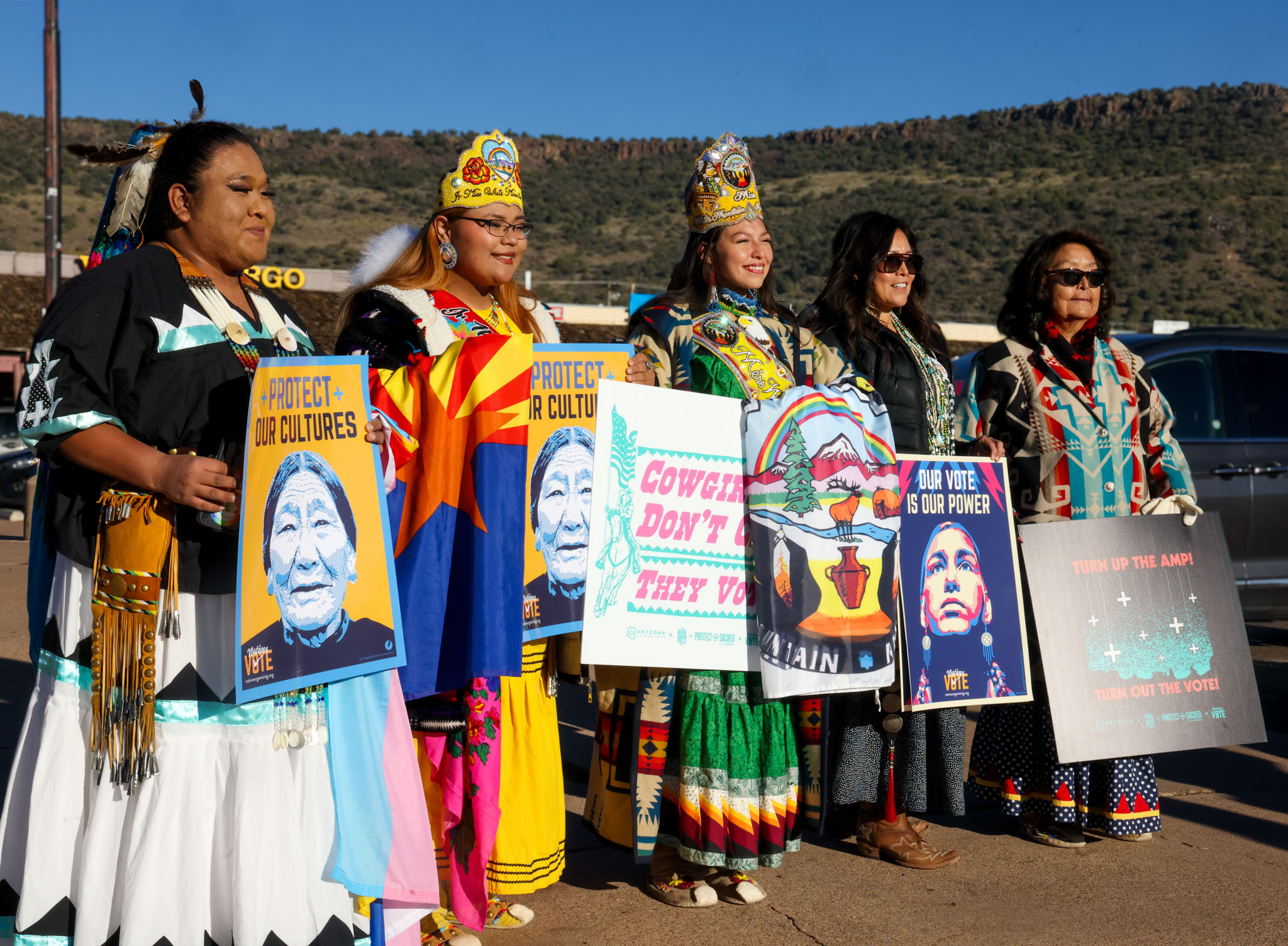
WHITERIVER, Arizona — Kaia Aiello, 20, sat on top of her horse, Amoureux, Tuesday and prepared to lead a group to the only polling location in this small town on the Fort Apache Indian Reservation so they could cast votes in the 2024 presidential election.
Aiello is a field organizer for Arizona Native Vote, a nonprofit organization that seeks to amplify Indigenous voices in rural communities throughout Arizona, including on Hopi and Navajo land and the three other federally recognized Apache nations in Arizona.
Aiello and other Apache, including Miss White Mountain Apache Charity Johnson, 23, and Jada Vargas, 19, who is co-president of the White Mountain Apache Tribal Youth Council, were the driving force behind Whiteriver’s “March to the Polls.”
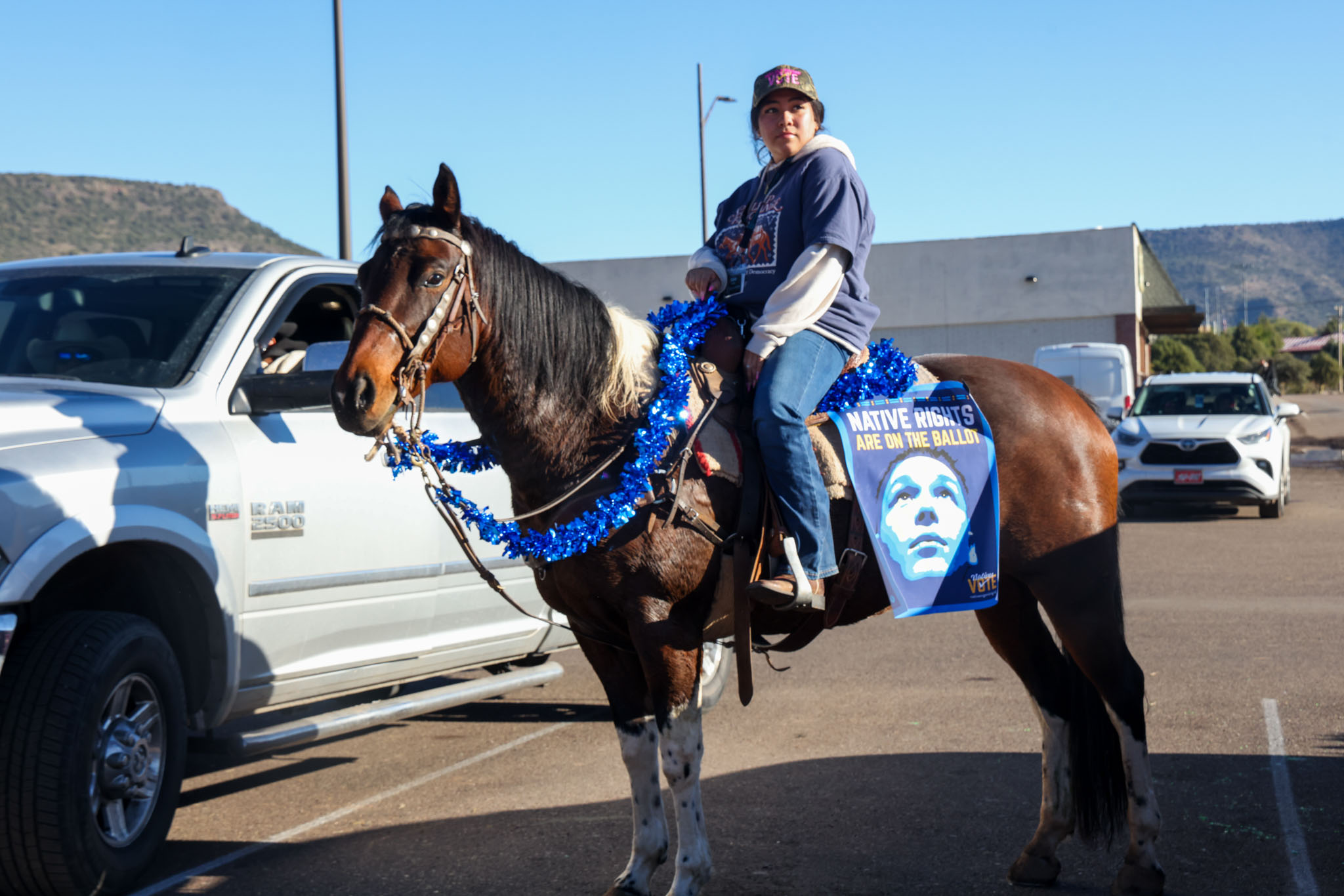
The event was part of a large-scale movement that originated from the Navajo Nation and has since spread across Arizona, where people are encouraged to walk, ride or skate to the election polling places to cast their ballots and make their voices heard.
“When we vote it counts. When we show up it matters,” Aiello said. “We can make a difference.”
Whiteriver has a population of roughly 4,500 people, according to the U.S. Census Bureau. But the White Mountain Apache Tribe that Aiello and a majority of the attendees belong to has around 17,000 members that reside across nine major reservations, with Whiteriver representing the largest population of tribe members.
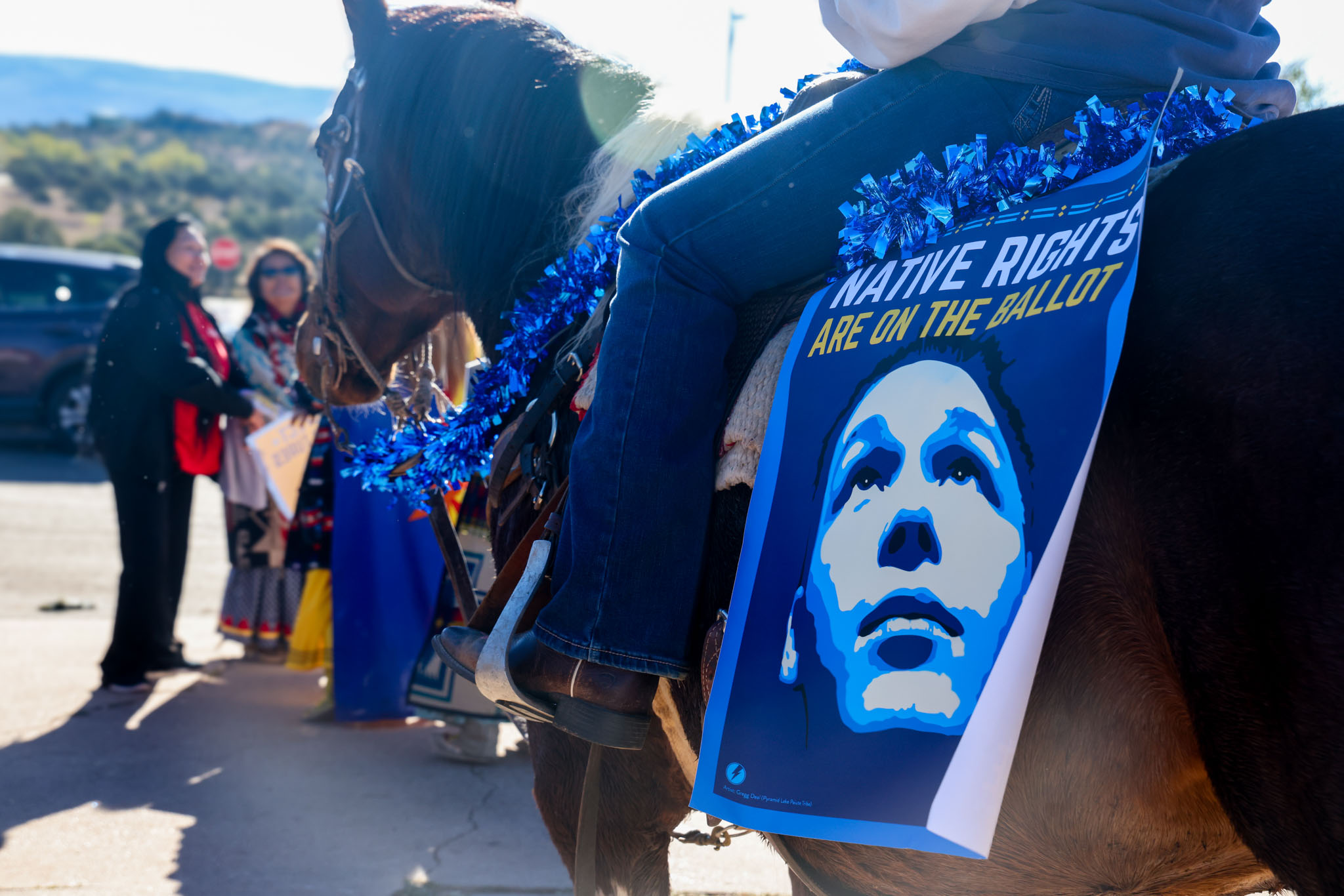
The frost that blanketed the area had barely subsided by 8 a.m., and the temperature hung at a chilly 30 degrees when Aiello rode up to “Times Square,” an area in Whiteriver between a supermarket and a Wells Fargo bank. But frigid temperatures didn’t stop attendees from showing up.
Landis Reed, a youth organizer with Arizona Native Vote who had been in the area since 6 a.m. encouraging people to vote, emphasized the importance of being part of the community they are working to support.
“Just having someone who is from their own reservation, who knows the people, who knows the trauma and what the people’ve gone through,” Reed said.
“Our votes matter because our votes speak words,” said Miss White Mountain Apache Charity Johnson.
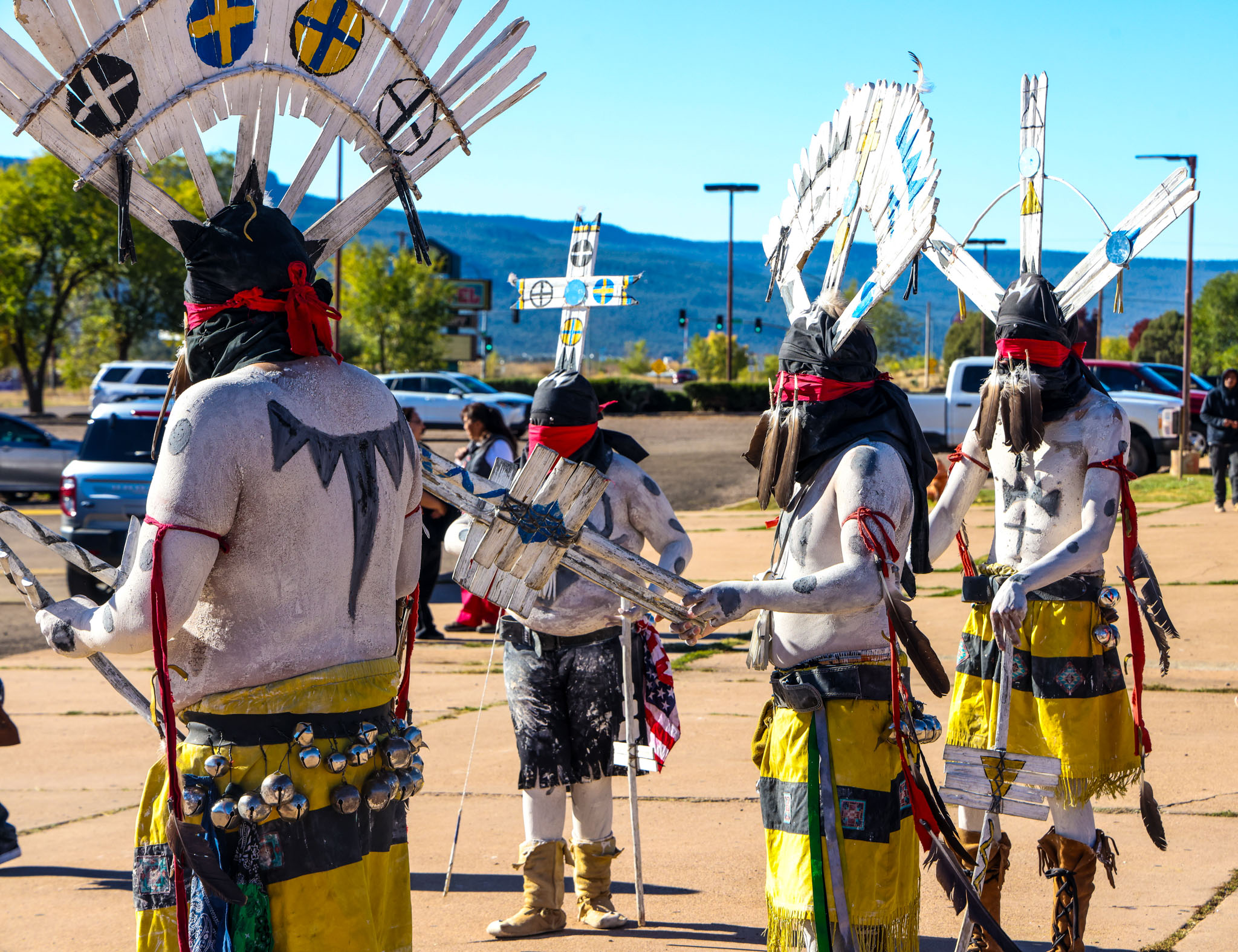
Apache Gaan Dancers, who embody the spirit of Gaan, or “Mountain Spirits,” danced to the beat of drums as the group marched to the polling place. The Gaan dancers showcase dances taught by Gaan that bring healing and harmony to the Apache – and today, to the elections.
“We get to actually have a voice now,” said Mylyle Ethelbah, a White Mountain Apache Tribe member and artist within the community. “Especially the amount of tribal people that are in the tribe that finally have the chance to voice their opinions – because, before this, we weren’t allowed to.”
Arizona was one of the last states to allow voting rights for Native Americans, and for years afterward, Indigenous communities still faced hurdles when it came to voting. Today, problems around elections still persist on Indigenous lands, including misinformation.
“A lot of people didn’t know that it was voting day,” Aiello said. “We were out canvassing the past couple weeks and reminding people, ‘Do you have a plan to vote? Do you need a ride?’ and they either didn’t know it was the election or they weren’t registered.”
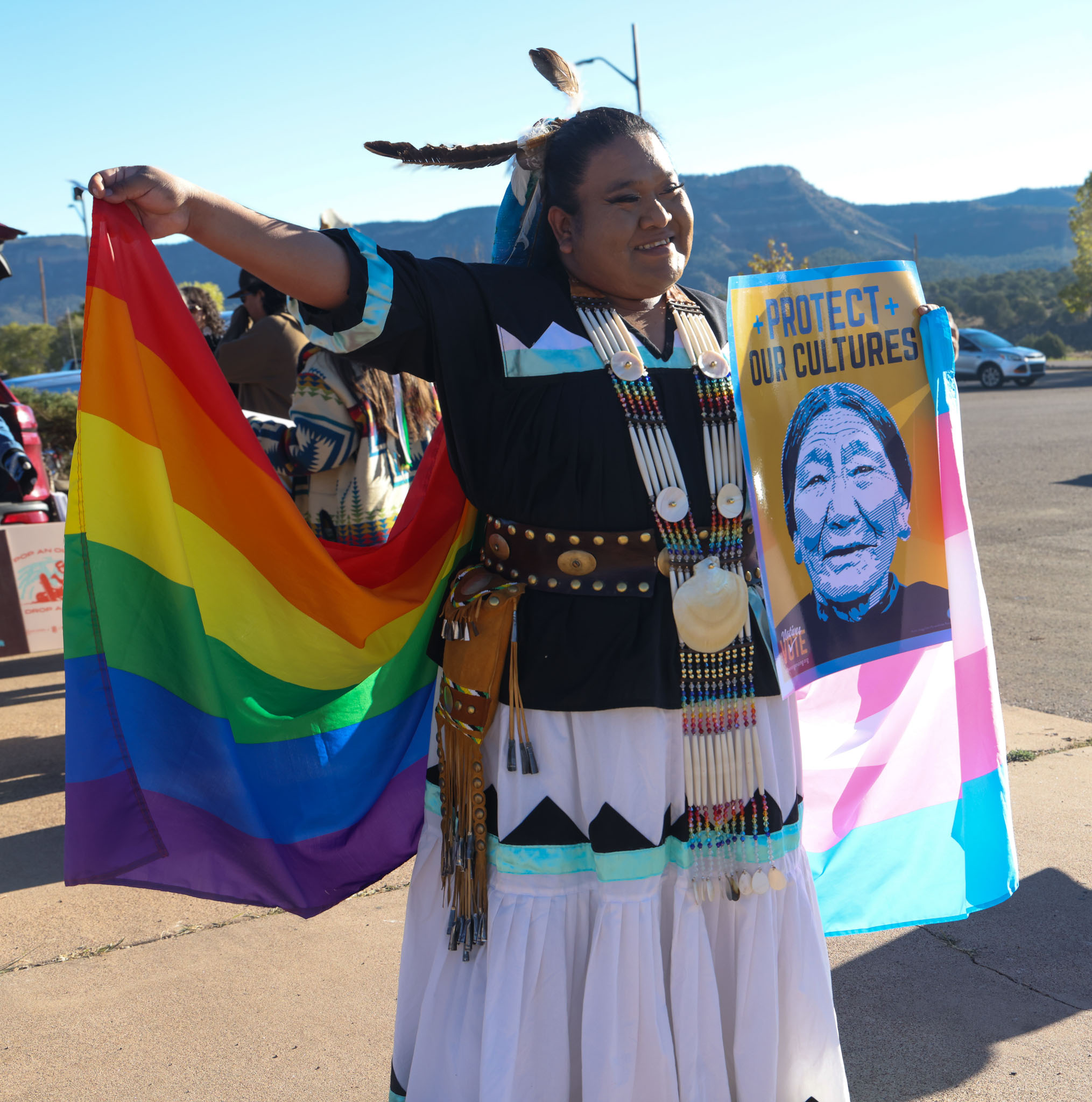
Receiving ballots is another issue Aiello said she noticed on Apache land.
“People get their ballots by post office boxes, not residential addresses,” Aiello said. “So, they would either have to be hand-delivered or just, hopefully, everyone gets to the post office.”
Despite these issues, Aiello and other Apaches have persevered to make sure their community participates in the election.
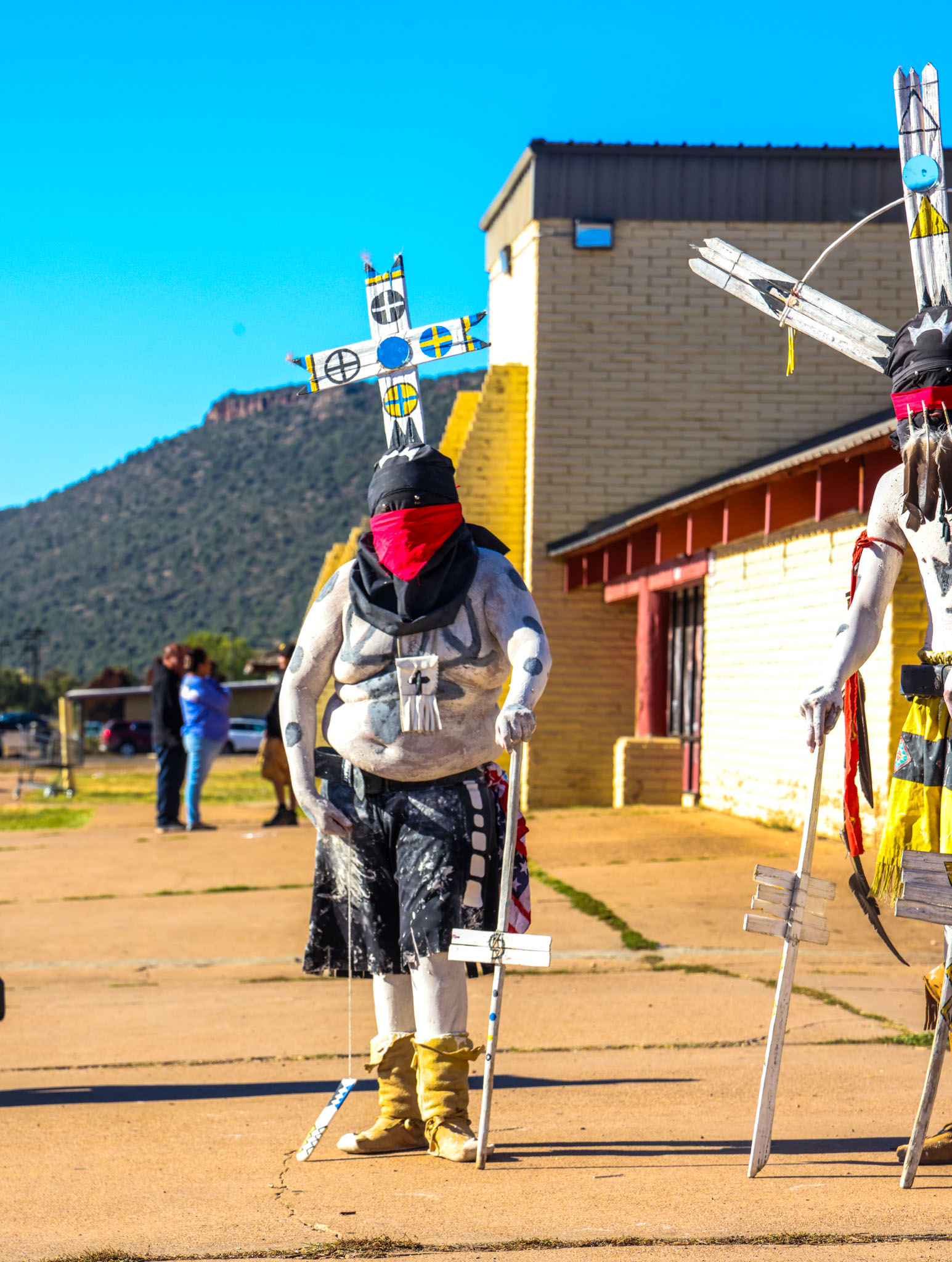
For Vargas, this will be her first time voting. Vargas was at Gila River Reservation when President Joe Biden issued an apology on behalf of the federal government for its role in Native American boarding schools. Vargas called the event amazing.
Through the White Mountain Apache Tribal Youth council, Vargas helped with community outreach services and leadership on Apache Land, giving Apache youth a voice.
“It’s important to vote because our voices really need to be heard,” Vargas said. “Our voice is very powerful.”
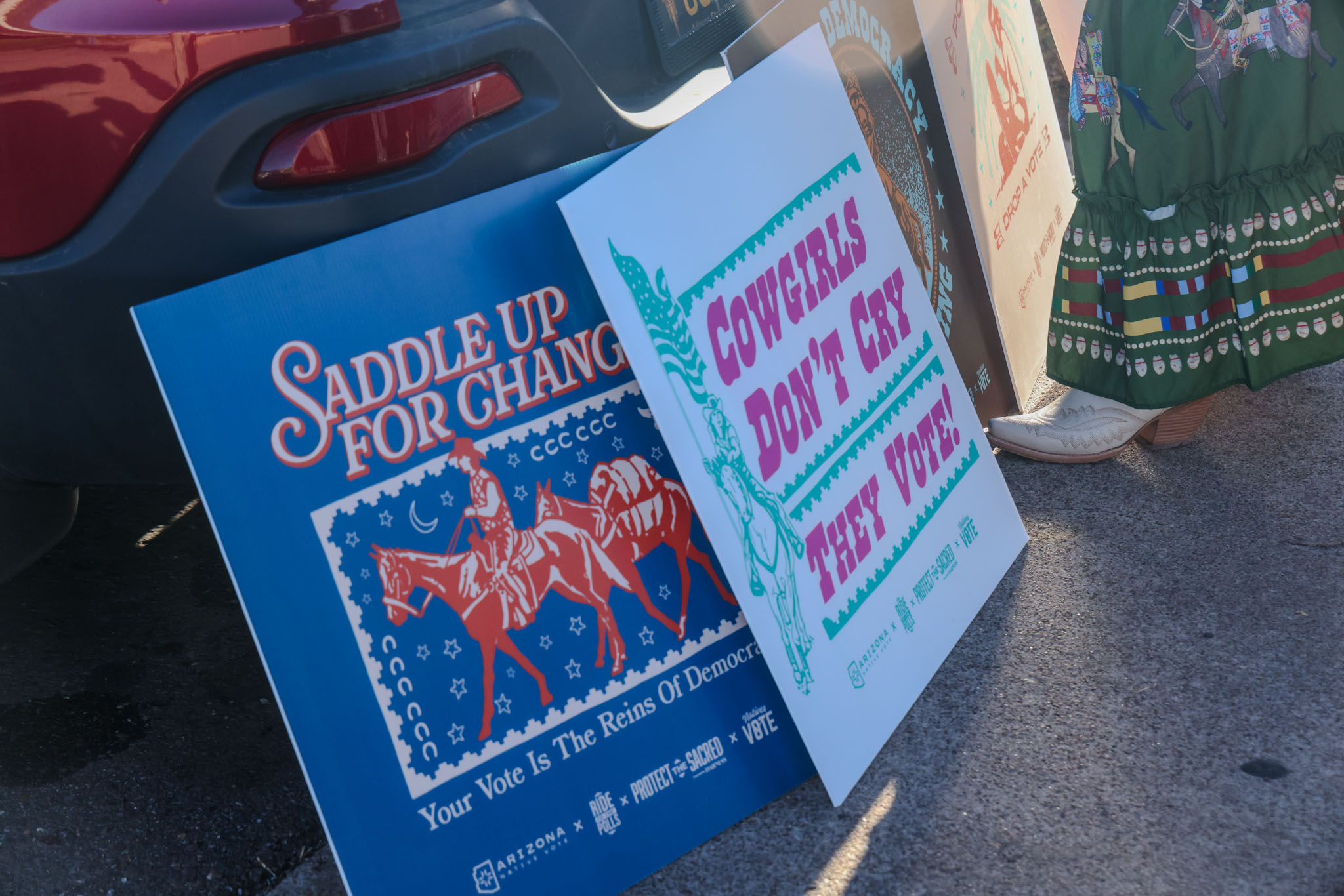
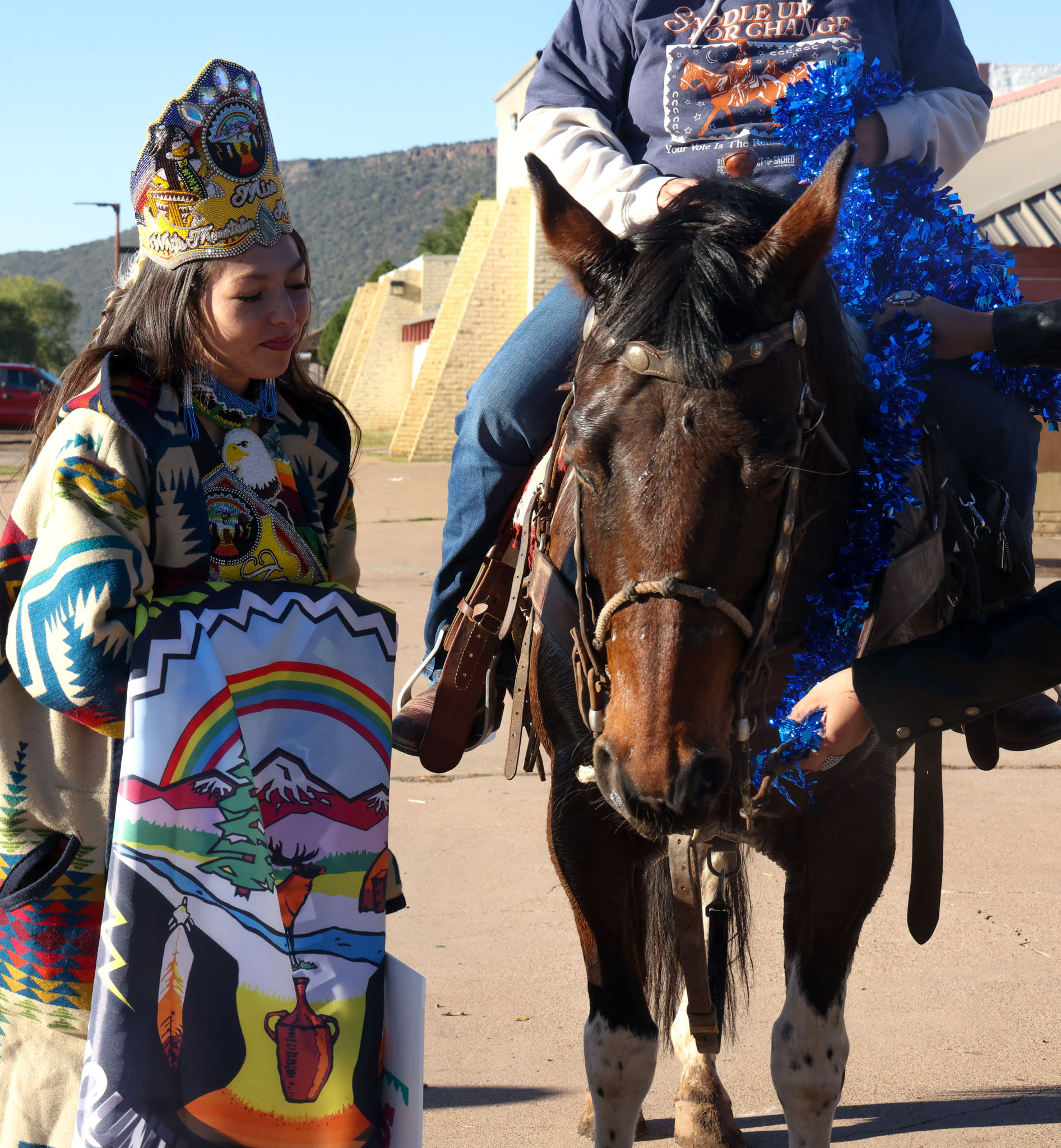
Note: This story originally appeared on Cronkite News. It is published via a Creative Commons license. Cronkite News is produced by the Walter Cronkite School of Journalism and Mass Communication at Arizona State University.
Cronkite News: A ‘mural with a message’ rises in Arizona
Chuck Hoskin: Cherokee Nation is an economic powerhouse
Native America Calling: Philanthropy fills in the gaps
AUDIO: Examining 50 years of the Indian Self-Determination and Education Assistance Act in Indian Country
Native America Calling: The next 50 years of self-governance
Cronkite News: Food sovereignty movement promotes Native foods
VIDEO: Examining 50 years of the Indian Self-Determination and Education Assistance Act in Indian Country
Native America Calling: Fresh Native creativity with a new play and new television show
AUDIO: Native American Education – Examining Federal Programs at the U.S. Department of Education
VIDEO: Native American Education – Examining Federal Programs at the U.S. Department of Education
Native America Calling: Indigenous business and the unpredictable new trade landscape
Written testimony for Senate Committee on Indian Affairs hearing on Department of Education
Native America Calling: An imbalance of deadly force by police in Canada
‘Betrayal’: Indian Country slams closure of Department of Education
More Headlines